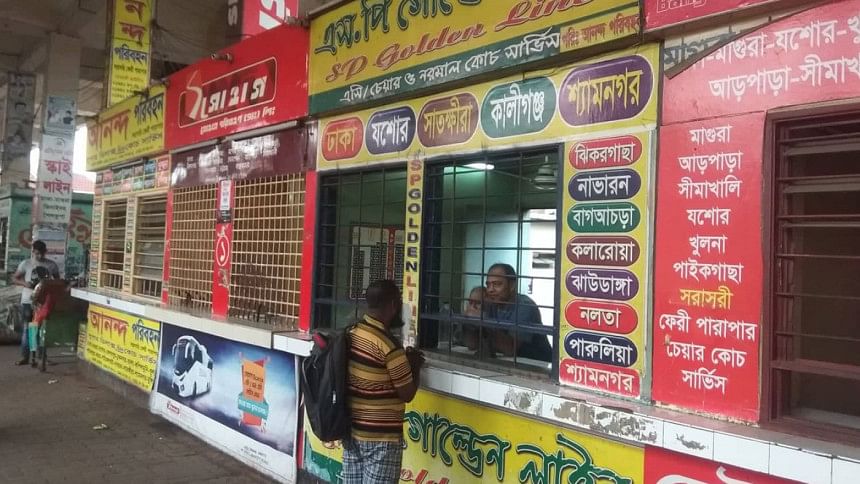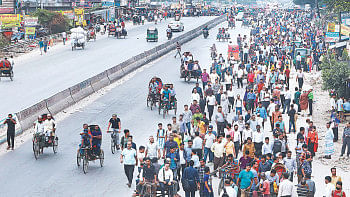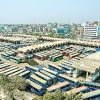Passengers swarm Gabtoli at strike-end

Passengers swarmed Gabtoli bus as the day drew to a close today, hoping that long haul buses will resume after the 40-hour transport strike.
Commuters were seen waiting for the strike to end in the evening; hoping that the buses will start plying from 6:00pm, our correspondent visiting the spot reports.
Those with more emergency needs were seen hiring a car, ride-sharing services or CNG-driven auto-rickshaws; paying higher fares than normal.
Abul Hosssain, driver of a private rent-a-car, told The Daily Star: “We are earning Tk 7,000 to 10,000 in a day at this time of crisis.”
WHY THE STRIKE?
The transport workers are agitating against the recently-passed Road Transport Act, which has unbailable provisions and up to Tk 5 lakh in fine.
Their demands include making all offences under the Road Transport Act “bailable”, cancellation of the provision that allows a worker to be fined Tk 5 lakh for involvement in a road accident, changing the minimum educational qualification required to obtain driving licences from class-VIII to class-V, and ending harassment by police on roads.
WHAT DO WE KNOW ABOUT THE ROAD TRANSPORT ACT?
On September 19, the parliament passed the much-anticipated Road Transport Act-2018 amid criticisms over lenient punishments for deaths caused by reckless driving.
According to the law, if anybody causes an accident by reckless and negligent driving, and kills or injures someone seriously, such person would face a maximum sentence of five years in jail or a fine of Tk 5 lakh or both.
However, if it is found that a driver has deliberately killed anyone or not averted a killing in a road accident, the matter would fall under either section 302 (murder) or 304 (culpable homicide) of the Penal Code, according to the explanation of the proposed act by the law minister.
The maximum punishment under section 302 of the Penal Code is the death penalty while it is life imprisonment under section 304.

 For all latest news, follow The Daily Star's Google News channel.
For all latest news, follow The Daily Star's Google News channel. 








Comments